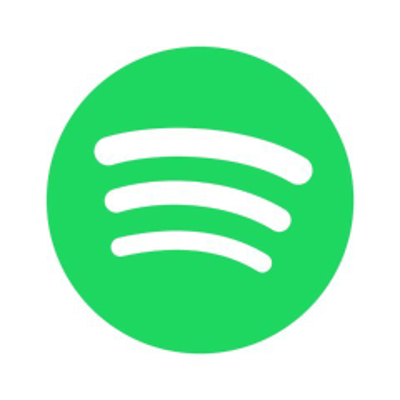
Spotify Technology S.A.
SPOT Real Time Price USDRecent trades of SPOT by members of U.S. Congress
|
Name
|
Type
|
Shares
|
Price
|
Shares Held
|
Date
|
Reported
|
|---|
|
Investor
|
Shares
|
Change in Shares
|
Market Value
|
Date
|
Reported
|
|---|
|
Investor
|
Type
|
Shares
|
Change in Shares
|
Market Value
|
Date
|
Reported
|
|---|
Recently reported changes in SPOT holdings by institutional investors
Quarterly net insider trading by SPOT's directors and management
* Insider trading data parsed from SEC Form 4 filings by Quiver Quantitative. Sign up for the Quiver API for real-time access.
- 1M
- 3M
- 6M
- YTD
- 1Y
- 2Y
- 5Y
- MAX
About
Key Metrics
Return (1d)
Return (30d)
Return (1Y)
CAGR (Total)
Max Drawdown
Beta
Alpha
Sharpe Ratio
Win Rate
Average Win
Average Loss
Annual Volatility
Annual Std Dev
Information Ratio
Treynor Ratio
Total Trades
Metrics Definitions
Disclaimer: The performance results shown are based on historical backtesting and are hypothetical in nature. Backtested performance does not represent actual trading and does not account for all market factors that may affect execution, such as liquidity, slippage, and changing market conditions. Past performance is not necessarily indicative of future results. There is no guarantee that any trading strategy will be profitable or avoid losses.
-
Alpha
Measures a portfolio's risk-adjusted performance against that of its benchmark
Learn More -
Annual Standard Deviation
Measures how much the portfolio's total return varies from its mean or average.
Learn More -
Annual Volatility
A statistical measure of the dispersion of returns for the portfolio.
Learn More -
Average Win
The average return (%) for trades that resulted in a positive return.
-
Average Loss
The average return (%) for trades that resulted in a negative return.
-
Beta
A measure of the volatility of the portfolio compared to the market as a whole.
Learn More -
CAGR
CAGR (Compounded Annual Growth Rate), is the historical annualized rate of return for an investment strategy, throughout the backtest period.
Learn More -
Information Ratio
A measurement of portfolio returns beyond the returns of its benchmark compared to the volatility of those returns.
Learn More -
Max Drawdown
the maximum observed loss from a peak to a trough of a portfolio, before a new peak is attained.
Learn More -
Sharpe Ratio
The Sharpe Ratio is a measure of historical risk-adjusted return, which quantifies the amount of return that an investor received per unit of risk.
Learn More -
Total Trades
The total number of trades made by this strategy.
-
Treynor Ratio
Attempts to measure how successful an investment is in providing compensation to investors for taking on investment risk.
Learn More -
Win Rate
The percentage of total trades that resulted in a positive return.
Be the first to see our newest insights and key updates across all datasets.

Government lobbying spending instances
SPOT Estimated quarterly lobbying spending
SPOT Revenue by Segment or Geography
New SPOT patent grants
Federal grants, loans, and purchases
Estimated quarterly amount awarded to SPOT from public contracts
Recent insights relating to SPOT
Recent picks made for SPOT stock on CNBC
ETFs with the largest estimated holdings in SPOT
- ... Highest Price Target
- ... Median Price Target
- ... Lowest Price Target
|
Analyst
|
Firm
|
Current
|
Previous
|
Date
|
|---|
- Is $SPOT stock a Buy, Sell, or Hold?
- What is the price target for $SPOT stock?
* Analyst consensus is not financial advice. Please see our data disclaimers .
|
Shareholder
|
Shares Held
|
|---|
- Who owns $SPOT stock?
- Who owns the most shares of $SPOT stock?
- What funds own $SPOT stock?
* These are estimates based on data taken from SEC filings. There may be inaccuracies due to parsing errors, accidental double-counting, incorrect classification of indirectly owned shares, or any other number of issues.
The Quiver Smart Score combines our data on Congress Trading, Lobbying, Insider Trading, CNBC Mentions and more to provide a comprehensive view of the strength of a stock's underlying data.
The Smart Score grades stocks on a scale of 1 (weakest) to 10 (strongest) based on the strength of the underlying data.Sign Up to view SPOT Smart Score
See concise summaries of analyst reports, presenting both bullish and bearish arguments for a stock.
Example:
The Bulls Say summary highlights positive aspects of the stock.
The Bears Say summary points out potential risks and negative aspects of the stock.
Spotify is the leading global music streaming service provider, with over 700 million monthly active users and 280 million paying subscribers, with the latter constituting the firm's premium segment. Most of the firm's revenue and nearly all its gross profit come from the subscribers, who pay a monthly fee to access a music library that consists of most of the most popular songs ever recorded, including all from the major record labels. The firm also sells separate audiobook subscriptions and integrates podcasts within its standard music app. Podcast content is not exclusive and is typically free to access on other platforms. Ad-supported users can access a similar music catalog but cannot customize a similar on-demand experience.

